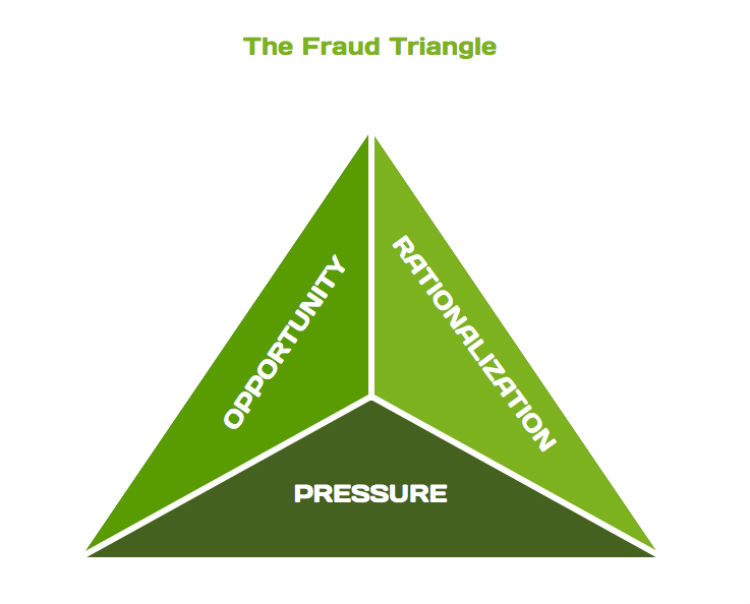They Weren't Criminals Until They Stole Your Money

 Tom Williams
Tom Williams
Retired Consultant
It’ been awhile since I blogged on embezzlement and regrettably, I’m feeling compelled to revisit this dark topic. The recent situation that sparked this writing is my learning of a familiar organization experiencing a valued staffer that embezzled a six figure amount of the money donated to their mission. As I shared in my previous blog, this sickens me professionally and saddens me for the work of all the great people that raised hundreds of thousands of dollars now being for naught. Disgustingly this action succeeds when we drop our complete nonstop attention to safeguards.
While I certainly encourage you to dig through our Nonprofit Network blog library and read “3 Dangerous Myths About Nonprofit Embezzlement”, today I want to share a different insight that may generate conversations within your organization.
Did you know that 93% of people who embezzled funds NEVER had a criminal record before? This fact from Marquette Report on Embezzlement is one that deserves some sincere reflection. Ponder the implications of this data about the 3,000+ embezzlers the Michigan State Police see annually (for profit and nonprofit). This means that all our safeguards are not to stop criminals from taking our organization’s hard earned money. Our safeguards are actually intended to eliminate an opportunity for a “trusted” person to take advantage of our negligence and take their first step over to the dark side.
Embezzlement is legally categorized as “fraud” and many of you are familiar with the “fraud triangle”. This helpful triangular diagram helps us clarify that fraud happens when: 1) There is a perceived OPPORTUNITY to commit fraud, 2) This OPPORTUNITY is experienced by a person experiencing a perceived pressure in their lives and 3) That person rationalizes the action they are about to take.

This person who rationalizes their integrity away can’t fully complete their action of becoming a criminal if we make it extremely difficult for them. The element of reducing OPPORTUNITY is the key portion of the fraud triangle our organization has control over. However, having our antenna up to monitor the other two elements will also prove beneficial. In nonprofit terms, this is often called “oversight”.
I don’t want to naively suggest we can entirely eliminate the crime of embezzlement (or any crime really), but since we as leaders of nonprofits are expected to provide “oversight” and be solid stewards of other people’s resources, employing best practices to fulfill our responsibilities can truly be impact-full. While a phone call to me or one of my colleague consultants can assist you in this conversation, I also want to strongly encourage your organization to participate in our financial workshops that delve into internal controls and appropriate policies to establish solid safeguards against embezzlement. I do want to suggest that this small time and dollar commitment can safeguard your organization against one of the most gut wrenching experiences a nonprofit leader will ever experience.
If you'd like to have a conversation about how to harden your financial safeguards, contact us, we can even do a presentation for your organization and board. We're here to help.
Speak with a Consultant
Want more? Click here to sign up for our weekly e-newsletter. Each week you'll get a link to the most recent news, workshops, and blog post. We promise to respect your time and will not flood your inbox. We only send one newsletter email each week and when any timely important announcements need to be made.

